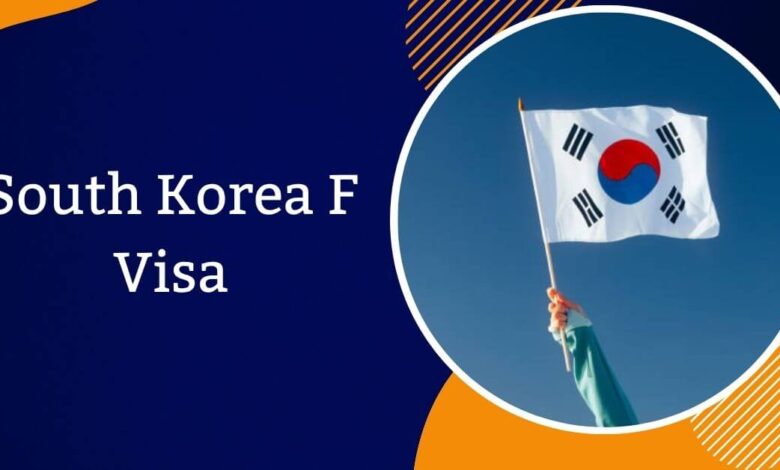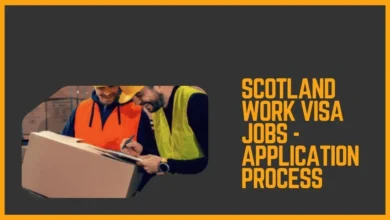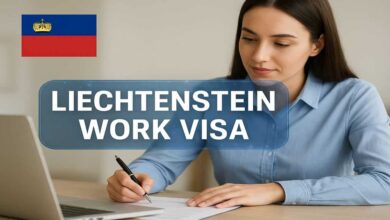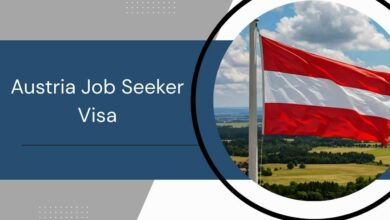South Korea F Visa 2026 – A Guide

South Korea’s F visa system is designed to regulate the entry and stay of foreigners seeking to live, work, or settle in the country. The F visas are particularly crucial for foreigners wishing to live in South Korea long-term, as they provide both the legal framework for residency and specific employment opportunities.
There are several categories within the F visa system, each tailored to different situations such as employment, business, and family reunification. Understanding the nuances of these visa categories is essential for anyone considering making South Korea their home.
Types of South Korea’s F Visa:
There are multiple types of F visas, with the F-2 Resident Visa and the F-5 Permanent Resident Visa being the most commonly discussed for those seeking long-term residency or employment in South Korea. These visas have different eligibility criteria, benefits, and application processes.
F-2: Resident Visa:
The F-2 Resident Visa is a long-term residency visa that allows foreigners to live and work in South Korea for extended periods, usually up to three years. This visa is ideal for individuals who have specific skills, are starting a business, or have strong ties to South Korea.
Eligibility for F-2 Visa:
To qualify for the F-2 Resident Visa, applicants must meet one of the following requirements:
- Ethnic Koreans:
Foreigners of Korean descent, particularly from China, Russia, or Central Asia, may be eligible for an F-2 visa under the “Overseas Korean” category. Ethnic Koreans who have either not acquired Korean citizenship or wish to return to Korea to live and work can apply. - Specialized Professionals:
Individuals with specialized skills or education, such as IT professionals, engineers, researchers, and skilled laborers in fields identified as important for South Korea’s economy, may qualify for this visa. For example, individuals with a master’s degree or higher and relevant professional experience are often eligible. - Investors and Business Owners:
If you are an investor or a business owner, you may qualify for an F-2 visa under the “Investor” or “Business Owner” categories. Applicants must show proof of substantial investment or business involvement in South Korea. Typically, this requires investing a minimum amount of capital (often around 100 million Korean won or more, depending on the nature of the business).
Benefits of the F-2 Resident Visa:
- Long-Term Residency:
The F-2 visa allows holders to stay in South Korea for up to three years initially. The visa can be extended if the holder continues to meet the eligibility criteria. After five years of continuous residence, the holder may be eligible to apply for permanent residency. - Employment Flexibility:
F-2 visa holders are not restricted to specific industries and can freely engage in various employment opportunities across South Korea. Unlike other types of visas, such as the E-2 (English teaching visa), the F-2 visa provides a higher level of job mobility. - Access to South Korean Healthcare:
As a resident visa holder, individuals are eligible to enroll in South Korea’s national health insurance system, which provides high-quality and relatively low-cost healthcare services. - Educational Benefits:
Children of F-2 visa holders can attend public schools at reduced tuition rates, and visa holders themselves may also pursue higher education opportunities. - Pathway to Permanent Residency and Citizenship:
After holding an F-2 visa for five years, individuals may apply for permanent residency (F-5). Moreover, those who meet additional residency requirements may apply for naturalization and citizenship.
F-5: Permanent Resident Visa:
The F-5 visa is granted to individuals who have successfully fulfilled the criteria for long-term stay in South Korea, allowing them to live and work without the need to renew their visa every few years. This visa is highly sought after as it offers the freedom to work in any job or sector without restrictions.
Eligibility for F-5 Visa:
- Long-Term Visa Holders:
Foreigners who have held long-term visas such as the F-2 Resident Visa or the F-6 Marriage Migrant Visa for a specified period (usually five years or more) may be eligible to apply for permanent residency. - Marriage to a South Korean Citizen:
Foreign nationals married to South Korean citizens for at least two years may qualify for the F-5 visa. They must demonstrate their commitment to residing in South Korea and show financial independence or employment. - Investors:
Foreigners who have made significant investments in South Korea and contribute to the local economy may qualify. This typically includes meeting a specified monetary threshold, which varies by visa category (e.g., business ownership or a high-value real estate investment).
Benefits of the F-5 Permanent Resident Visa:
- Unrestricted Work Opportunities:
F-5 holders can work in any industry or occupation without limitations. They are free to change jobs or start new businesses without requiring additional work permits. - Eligibility for Professional Licenses:
F-5 holders can apply for professional licenses in fields such as law, medicine, and education, provided they meet the qualifications set by the relevant South Korean authorities. - Access to Social Services:
Permanent residents enjoy access to a wide range of government services, including social security, pensions, and healthcare. This is similar to the rights of South Korean nationals. - Pathway to Citizenship:
After holding an F-5 visa for a certain number of years (typically five), foreign nationals may be eligible to apply for South Korean citizenship.
Application Process for South Korea F Visa:
The application process for F visas is structured but can vary depending on the applicant’s category and nationality. Below is a step-by-step guide to applying for an F visa.
1. Documents Required:
- Completed Application Form:
Applicants must fill out the visa application form, which can usually be found on the website of the South Korean consulate or embassy in the applicant’s home country. - Valid Passport:
A passport with at least six months of validity is required. - Proof of Eligibility:
Depending on the visa type, this could include proof of employment, educational qualifications, business ownership, or proof of ethnic Korean heritage. - Medical Exam:
Applicants may be required to undergo a medical exam to ensure they meet South Korea’s health requirements. - Criminal Record Check:
A background check is typically required to confirm that the applicant does not have a criminal history.
2. Visa Fees and Processing Times:
Visa fees can vary based on the applicant’s nationality, visa type, and the processing office. Applicants should contact the nearest South Korean consulate to confirm the fees applicable to their situation.
- Processing Times:
Processing times for F visas can range from a few weeks to several months. It’s advisable to apply well in advance to account for any delays.
3. Where and How to Apply:
Applications can generally be made through:
- South Korean Embassies and Consulates in the applicant’s home country.
- Authorized Visa Agencies recognized by the South Korean government.
- Direct Submission at South Korean immigration offices for individuals already in South Korea.
Tips for a Successful Visa Application:
- Consult with Immigration Experts:
The visa application process can be complex, and requirements may change frequently. It’s advisable to consult with immigration lawyers or experts to ensure a smooth application process. - Complete Documentation:
Ensure that all required documents are submitted and complete. Missing documents can delay the process or lead to a visa rejection. - Understand Visa-Specific Rules:
Be aware of the specific conditions tied to your visa category. For example, investors may need to demonstrate ongoing business activities, while professional visa holders may need to maintain certain employment statuses.
Conclusion:
South Korea’s F visa system provides an essential pathway for foreigners wishing to live, work, or invest in the country. The F-2 Resident Visa and F-5 Permanent Resident Visa are critical for long-term stays, with benefits ranging from employment flexibility to access to South Korea’s healthcare and education systems. By understanding the specific requirements and processes, potential applicants can navigate the visa application with ease. Always ensure you are using the most current and official information, and seek expert advice when necessary.
Frequently Asked Questions:
Who needs an F Visa in South Korea?
Foreigners planning to work, study, settle, or reunite with family in South Korea typically need an F Visa, depending on their specific purpose and eligibility criteria.
What are the main types of F Visas?
The F-2 Resident Visa is for long-term residents with specific skills or investments, while the F-5 Permanent Resident Visa allows indefinite stay and unrestricted employment.
How much does the F visa cost?
In addition to the cost of education in the United States, international students will be needed to pay the following fees in order to obtain an F-1 visa: The fee for the Form DS-160 (Nonimmigrant Visa Application) is $160. The fee for SEVIS I-901 is $200. Visa issuance fee: the cost will differ according to the country in which the visa was issued.




